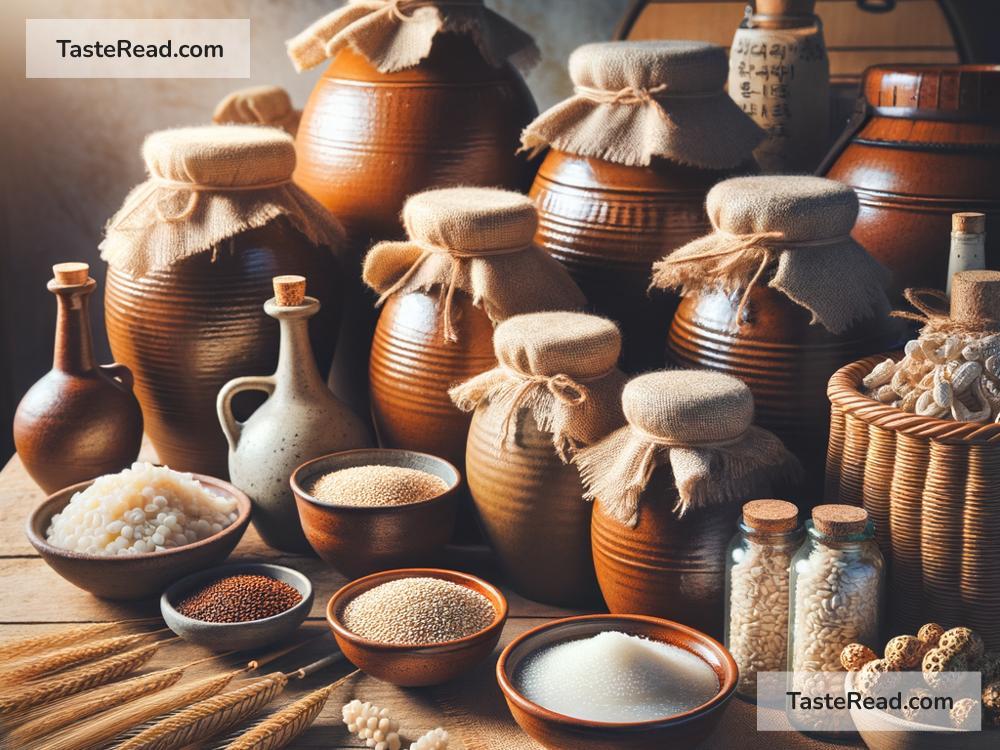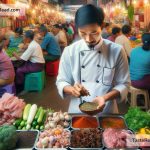Discovering the Ancient Art of Korean Makgeolli Brewing
Makgeolli, a traditional Korean alcoholic beverage, is making a grand comeback on the international stage, enchanting enthusiasts and curious souls alike with its unique taste and rich heritage. This ancient brew, often dubbed Korean rice wine, is much more than just an alcoholic drink; it’s a testament to Korea’s rich cultural traditions and a fascinating craft that has been passed down through generations.
What is Makgeolli?
Makgeolli is a milky, lightly sparkling rice wine with a sweet and slightly tangy flavor profile. Its alcohol content typically ranges from 6% to 8%, making it a relatively mild alcoholic beverage. Historically, it was the drink of choice for farmers due to its nourishing properties and ease of production, earning it the affectionate nickname “farmer’s wine.”
The Brewing Process: A Blend of Art and Science
The process of brewing Makgeolli is an art form that intertwines closely with science. It begins with two key ingredients – rice and water. The rice is first steamed, cooled, and then mixed with nuruk, a traditional Korean fermentation starter that contains wild yeast and beneficial bacteria. This mixture is left to ferment in a cool place for about 7-10 days, during which it undergoes a magical transformation.
The nuruk is crucial as it kickstarts the fermentation process, breaking down the starches in rice into sugars, which are then converted into alcohol and carbon dioxide. This dual fermentation process is what gives Makgeolli its characteristic slightly sweet, tangy flavor, and its bubbly effervescence.
A Deep-Rooted Cultural Heritage
Makgeolli is much more than a drink; it’s a bearer of Korea’s agricultural history and socio-cultural dynamics. In the past, making and sharing Makgeolli was a communal activity that strengthened bonds within communities. It was present at every significant social gathering, from festivals to small family gatherings, symbolizing unity and togetherness.
Moreover, the drink’s simplicity and the self-sufficiency it represented were in harmony with Korea’s agricultural lifestyle. Importantly, the resurgence of Makgeolli in contemporary times is not merely a fad but a renaissance of appreciation for traditional practices and flavors.
The Renaissance of Makgeolli
The revival of Makgeolli in both domestic and international markets can be attributed to a growing interest in artisanal and craft beverages. Modern breweries are experimenting with different rice varieties, aging processes, and even incorporating new flavors, thus broadening Makgeolli’s appeal to younger generations and global palates.
However, the essence of Makgeolli brewing—the respect for the ingredients, the reliance on nature’s tempos, and the communal spirit of sharing—remains unchanged. This balance between tradition and innovation is a testament to the brew’s enduring legacy.
Adventures in Makgeolli Tasting
For the uninitiated, diving into the world of Makgeolli can be a delightful adventure. Its complexity and variety can surprise those used to more mainstream alcoholic beverages. When tasting Makgeolli, one can explore the nuances of different brews, from the texture and effervescence to the depth of flavors influenced by the type of rice, the brewing process, and the fermentation period.
Pairing Makgeolli with food also opens a realm of culinary experiences. Traditionally paired with Korean pancakes (Pajeon) or hearty stews, its versatility goes beyond, complementing a wide range of flavors from spicy to savory dishes.
Preserving the Art of Brewing
The resurgence of Makgeolli has sparked interest in preserving and learning the traditional brewing methods. Breweries and organizations offer workshops and courses for those keen on delving into the art of Makgeolli making, ensuring that this ancient craft continues to thrive and evolve.
Conclusion
The journey of discovering Makgeolli is a testament to the beauty of exploring cultural heritage through taste. It’s not just about enjoying a traditional beverage but understanding and appreciating the history, craftsmanship, and communal spirit that it embodies. As Makgeolli continues to captivate hearts and palates around the world, it carries with it the essence of Korean culture, inviting everyone to partake in its rich history and vibrant future.


